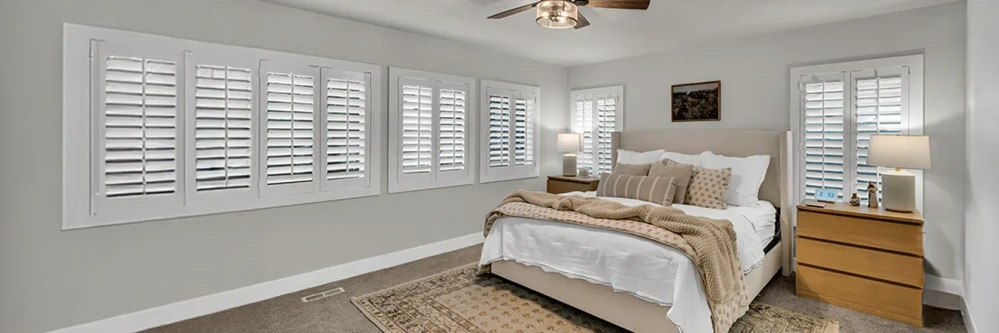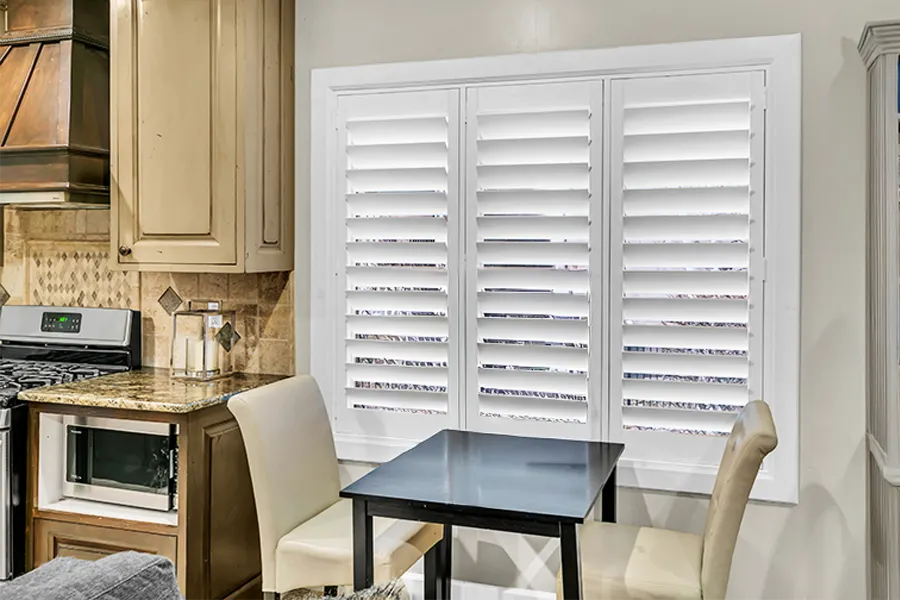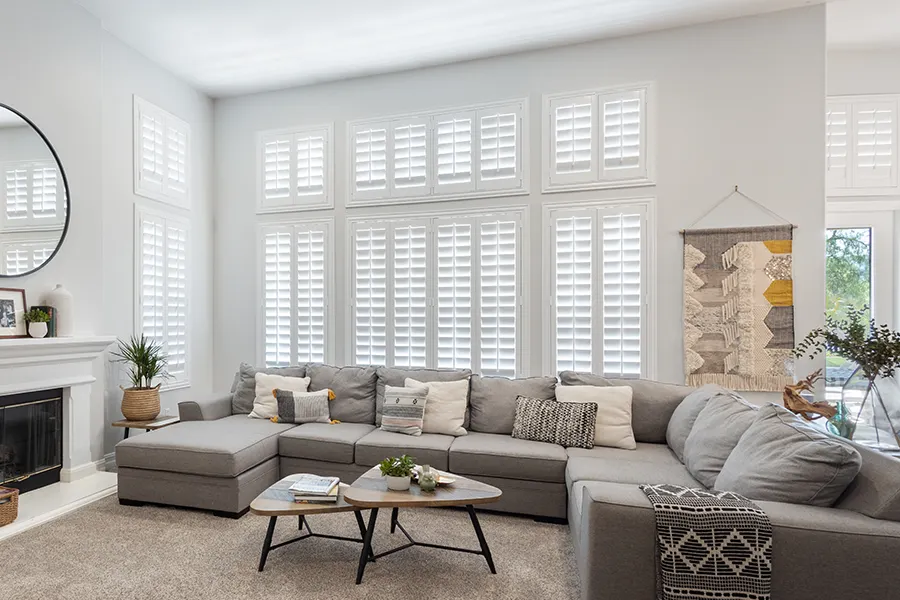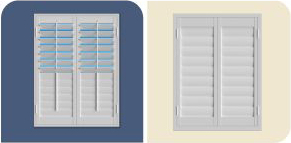
What Are Faux Wood Shutters?
One hundred years ago, plantation shutters were made of wood. Today, we have cutting-edge composite materials that might look like wood but offer greater longevity and durability. Commonly described as “faux wood,” these materials make incredible interior shutters for your Boston windows. If you’re not familiar with faux wood shutters, learn more about these sought-after, versatile window treatments!
Why Use Faux Wood Shutters In Your Boston Home?
Plantation shutters are a wonderful but at times underappreciated window treatment because numerous homeowners aren’t familiar with them. To start, interior shutters use a hinged panel that rests inside a frame attached to your window. This well-built panel shields the window unless you pull it open on its hinge. Inside the panel you’ll see a row of functional louvers. These slender but firm louvers lie flush with each other when shut. Tilt them up, and they welcome in light.
Interior shutters traditionally are known for being built from solid wood, but faux wood shutters are found in various engineered wood substitutes. These enhanced materials are less vulnerable to scuffs, humid conditions, mold, and insects that can damage wood shutters. They also are just as effective, if not moreso, of blocking light and exterior air as wood shutters.
Are There Different Kinds Of Faux Wood Shutters?

If you are trying to figure out which non-wood shutter is ideal for your home, it might be difficult to recognize the differences. Faux wood may have superior characteristics over natural wood, but not all faux-wood shutters are identical.
Vinyl shutters don’t qualify as an actual faux wood, but they could be presented as an alternative to wood shutters. Vinyl shutters are easy on the pocketbook, but fall short on quality. They have a plastic look and can warp, crack, or even melt in hot sun rays. Once that happens, they won’t give you sufficient light control, energy efficiency, or privacy.
Synthetic-wrapped shutters are made of wood chip materials, glued MDF, or pressed wood, and then coated with a vinyl, synthetic, or plastic coating. They’re sturdier than vinyl shutters, but their components are sensitive to moisture and humidity. Also, wrapped shutters cannot be custom-fitted for specialty-shaped windows like circles and arches.
Solid extruded shutters are constructed from durable synthetics and finished with an exterior coating. They can be designed to feature a smooth or wood-grain texture. Their composite fibers keep them from splitting or warping like wood can. High-end, solid extruded interior shutters like Polywood® shutters hold up beautifully for decades in any room, offering the most value for your investment. Yet, low-quality extruded shutters may be more prone to cracking or don’t have the UV inhibitor that prevents fading.
What To Expect In An Excellent Faux Wood Shutter

Faux wood shutters in Boston don’t all boast the same quality. When looking for interior shutters, you require a solution that boosts your home and life for years to come. Your leading selection is Polywood shutters. They offer these benefits:
- Stunning appearance
- Work with all interior designs
- Last for decades
- Impervious to damage from temperature changes, wet conditions, scratching, and UV rays
- Clean up easily
- Fit any window shape
- Block most sunlight and outdoor temperature transfer
Bring Your Interior Shutter Questions To The Professionals
No company knows more about interior shutters than the professionals at Sunburst Shutters Boston! We’ll answer all your questions about faux wood shutters and all other types of window treatments when you request a free in-home consultation. Reach out to us at 781-352-2205 or submit the following form to set your appointment. We'll demonstrate our premium products and help you order the perfect shutter for your needs.


